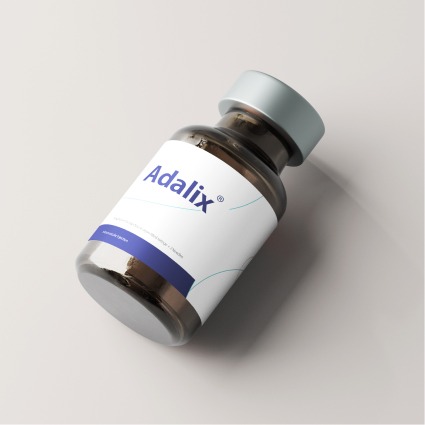Introduction: The Strategic Rise of Bio Pharma in the GCC
The Gulf Cooperation Council (GCC) nations are experiencing a dynamic transformation in healthcare, particularly within the biopharmaceutical and biotechnology sectors. As of July 2025, the region is witnessing accelerated development in biologics, monoclonal antibodies (mAbs), and gene-modified cell therapies (GMCTs), supported by strategic national visions such as Saudi Vision 2030, UAE Centennial 2071, and Qatar National Vision 2030.
This article provides a comprehensive update on the latest advancements in biotherapeutics across the GCC countries, examining investment trends, regulatory shifts, and scientific innovations that are shaping the region’s future.
Market Outlook: A Surge in Biologics
Rapid Market Growth and Forecasts
The GCC biologics market is poised for a significant surge, projected to grow from US$21.6 billion in 2024 to US$102.9 billion by 2035, with a compound annual growth rate (CAGR) of approximately 15.3%. Monoclonal antibodies are the largest contributors, expected to increase from US$7 billion to $32.5 billion during the same period.
This growth is not isolated, but rather part of a broader shift in the Middle East and North Africa (MENA) market towards high-value biotherapeutics, driven by aging populations, rising chronic disease rates, and a push for healthcare localization.
Key Growth Drivers
- Government-backed initiatives such as national visions and health transformation strategies
- Public-private partnerships fostering innovation and infrastructure
- Regulatory harmonization efforts across GCC members
- Growing demand for targeted therapies, especially in oncology, autoimmune, and rare diseases
Monoclonal Antibodies (mAbs): Clinical and Commercial Acceleration
Regional Manufacturing and Licensing Agreements
In July 2025, OncoZenge (Norway) signed an exclusive licensing and distribution agreement with Avernus Pharma (UAE) for BupiZenge, a topical analgesic based on bupivacaine. Although not a monoclonal antibody, this Phase 3 licensing deal is emblematic of broader cross-border activity, paving the way for more complex biologics, such as monoclonal antibodies (mAbs).
The global contract manufacturing of monoclonal antibodies reached US$89 billion in 2025. The Middle East & Africa mAbs market stands at US$4.9 billion, with expectations to reach US$12.9 billion by 2033 (CAGR ~13%). GCC nations, especially Saudi Arabia and the UAE, are enhancing production capacity through strategic foreign partnerships.
Clinical Adoption and Therapeutic Focus
- Oncology: HER2+ breast cancer, hematologic malignancies
- Autoimmune disorders: Rheumatoid arthritis, psoriasis
- Infectious diseases: COVID-19 variants, hepatitis C
Gene-Modified Cell Therapy (GMCT): Entering the Clinical Frontier
Infrastructure and Global Integration
While gene therapies have largely been concentrated in North America and Europe, GCC countries are now aligning their infrastructure for CAR-T cell therapies and gene-modified platforms. In July 2025, AGC Biologics, a global CDMO, expanded its cell and gene therapy development operations, citing strong demand in emerging markets, including the GCC.
This investment is significant for the region, which seeks to:
- Attract technology transfer agreements
- Localize production capabilities
- Establish GMP-compliant laboratories
Regulatory and Clinical Trial Environment
The GCC region is working toward a harmonized regulatory pathway for gene-modified therapies. A recent workshop involving regulators from Saudi Arabia, UAE, Oman, and Kuwait discussed aligning clinical trial oversight and biologics registration for advanced treatments. This initiative aligns with the EMA and FDA frameworks.
Pilot Programs and Patient Access
- Saudi Arabia has begun patient enrollment for an autologous CAR-T trial targeting relapsed lymphomas.
- Qatar’s Ministry of Public Health announced partnerships with academic centers to establish a GMP-compliant vector lab.
Biosimilars and Policy Coordination
GCC Biosimilar Framework Launched
In mid-2025, a consortium of policymakers and pharmaceutical experts from all six GCC nations proposed a GCC Biosimilars Value Framework, focusing on cost-effectiveness, patient education, and pharmacovigilance.
This initiative is designed to:
- Increase biosimilar acceptance among healthcare professionals
- Reduce dependence on originator biologics
- Boost local manufacturing through regulatory clarity
Summit on Regulatory Harmonization
The 10th GCC Regulatory Affairs Pharma Summit, held earlier in Dubai, emphasized the importance of regional collaboration in licensing and post-marketing surveillance. Key outcomes included:
- A GCC centralized review mechanism for biologics
- Guidelines for biosimilar interchangeability
- Support for fast-track review of WHO-prequalified biologics
Strategic Implications for the Region
Healthcare Sovereignty
The localization of biologics and advanced therapies aligns with the region’s ambition to reduce dependency on imports and gain therapeutic sovereignty. This includes:
- Building domestic R&D capabilities
- Training the next generation of clinical scientists and bioprocess engineers
- Attracting international firms to set up regional hubs
Investment Opportunities
Global CDMOs, biotech startups, and investors are increasingly eyeing the GCC as a high-potential market for:
- Biologic drug licensing
- Local clinical trial sites
- Manufacturing partnerships
The combination of rising demand, regulatory momentum, and government incentives makes the region particularly attractive for long-term biopharma investment.
Challenges to Address
- Workforce capacity in biotech manufacturing and QC testing
- Pricing and reimbursement clarity for novel therapies
- Public awareness and trust in biosimilars and gene therapies
Looking Ahead: The Road to 2030
Innovation Pipeline
Several workshops and regional forums scheduled for late 2025 will focus on emerging frontiers such as:
- Spatial omics and neoantigen-based vaccines
- Off-the-shelf CAR-T products
- AI-enabled clinical trial designs
Harmonized Success
To fully realize the potential of biopharma innovation, GCC countries must commit to sustained collaboration in:
- Regulatory policy
- Technology transfer
- Clinical trial governance
The seeds planted in 2025 will define the GCC’s capacity to serve as a regional biotech leader by 2030 and beyond.
Conclusion
The GCC region is undergoing a profound transformation in its approach to healthcare and innovation. July 2025 has proven to be a landmark moment, with critical developments in monoclonal antibodies, gene-modified therapies, and biosimilar frameworks coming to fruition. Backed by national strategies, regulatory modernization, and international partnerships, the GCC is rapidly becoming a global force in the biologics and advanced therapy landscape.

